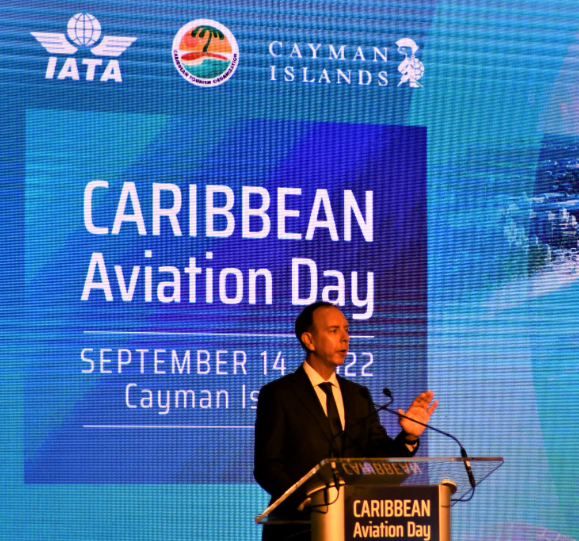The International Air Transport Association (IATA) successfully concluded its 4th Caribbean Aviation Day, which was held under theme “Recover, Reconnect and Revive” and brought together more than 250 delegates from across the wider aviation and tourism value chain. The event was an integral part of a series of tourism and aviation focused events hosted by the Caribbean Tourism Organization and the Government of the Cayman Islands.
In his opening remarks, Peter Cerdá, IATA’s Regional Vice President for the Americas stated that the region was on a good recovery track following the devastating effects of the COVID-19 pandemic and that with the right business environment, aviation could once again become a strong contributor to the socio-economic wellbeing of the Caribbean region.
Prior to 2020 aviation and tourism contributed 13.9% of GDP and 15.2% of all jobs in the Caribbean region. According to the World Travel & Tourism Council (WTTC), eight out of the ten most tourism-dependent countries globally in 2019 were in this region.
In order to regain and even surpass this contribution, the following priorities should be addressed:
- Connectivity:
While connectivity between the Caribbean and the important source markets of Canada, Europe and the USA largely has been restored, the intra-Caribbean passenger levels have only reached 60% of pre-pandemic levels. Improving this requires a concerted effort to increase air links within the Caribbean. This also is a precursor to offering more multi-destination travel options. - Multi-destination tourism:
To remain competitive with other key tourism markets across the globe, the various Nations in the Caribbean need to look at putting multi-destination offers into the market. - Seamless travel experience:
To facilitate travel to, from and within the region, governments need to work together in order to modernize and simplify the outdated policies and procedures which pose operational challenges to airlines and adversely affect the travelers’ experience. - Competitive cost environment:
At present the Caribbean has some of the highest taxes and fees on airline operations and tickets. By way of comparison, at a global level, taxes and charges make up approximately 15% of the ticket price and in the Caribbean the average is double this at approximately 30%. Today’s travelers can reach the other end of the world with one or two flights, with the total cost of vacations increasingly become a decision-making factor. Hence governments must be prudent and not price themselves out of the market. Along similar lines Air Navigation Service Providers need to ensure that their charges remain appropriate for the actual service provided.
“Governments and Stakeholders voiced their support for the identified industry priorities during the Aviation Day. We now expect to see the appropriate actions and decisions. For example, ticket taxes, charges and fees need to be reduced to bring them in line with the global average. Increasing these would be detrimental to demand. All participants in the travel value chain need to work in unison to rebuild aviation and tourism in the post pandemic world. Our industry stands ready to lend our support to help the region achieve the potential 6.7% travel and tourism GDP increase per annum between 2022 and 2023, as forecast by the WTTC,” Cerdá concluded.



